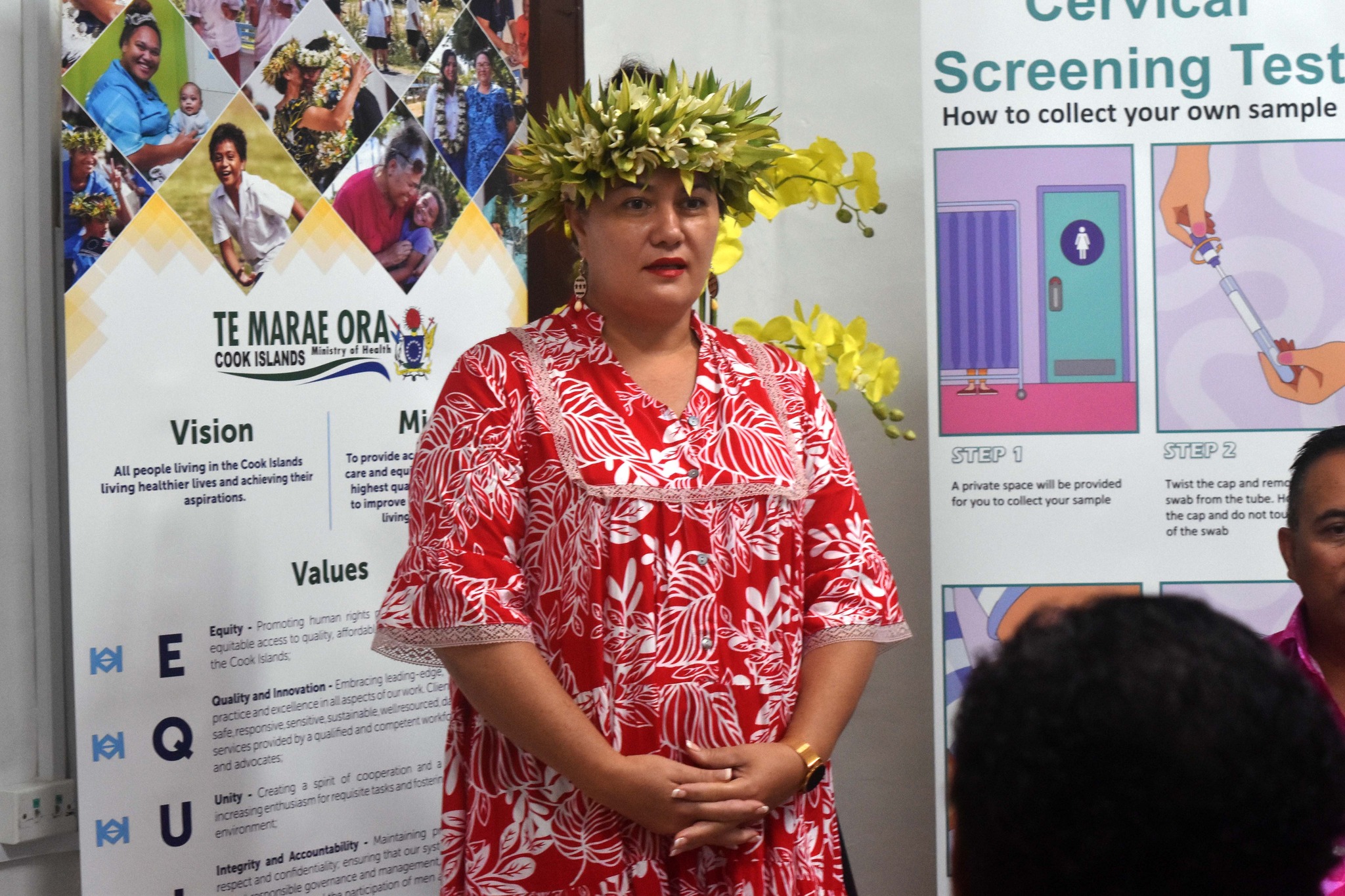TMO launches cervical cancer self-testing programme
Friday 22 December 2023 | Written by Melina Etches | Published in Health, National

Minister for Health Rose Vainetutai Toki-Brown launches the Cervical Cancer Self-Testing Programme that will begin in January 2024. TMO/23122025
Te Marae Ora Ministry of Health has taken a step further into improving women’s health in the Cook Islands by launching the Cervical Cancer Self-Testing Programme that will commence in January 2024.
This programme, run in partnership with the Cook Islands Family Welfare Association (CIFWA), is made possible by a donation of 500 self-test kits from the Victorian Cytology Service (VCS) Foundation Australia. These kits will kick off cervical screening for women aged 25 and over.
Dr Yin Yin May, the outgoing director of Hospital Health Services, said the goal of cervical cancer screening is to find abnormal cells in the cervix or cervical cancer early when it is more treatable and curable.
“Cervical cancer is an abnormal growth of a cell that starts in the cells lining the cervix,” Dr May explained. “The cervix is the lower, narrow end of the uterus (womb). The cervix connects the uterus to the vagina (birth canal). Cervical cancer usually develops slowly over time.”
Regular screening can prevent cervical cancers and save lives, she adds.
The tests for cervical cancer screening include the Human Papilloma Virus (HPV) test and the Pap test.
Dr May said: “Pre-cancerous changes can be detected by the Pap test and treated to prevent cancer from developing.”
The HPV test looks for infection by high-risk types of HPV, 16 and 18, that are more likely to cause pre-cancers and cancers of the cervix.
“Although cervical cancers start from cells with abnormal changes, only some women with these changes of the cervix will develop cancer.
“For most women, these abnormal cells will go away without any treatment.
“But, in some women these abnormal cells can turn into true (invasive) cancers.
“Treating abnormal changes in cervical cells can prevent almost all cervical cancers.”
Dr May noted that HPV infection has no treatment, but a vaccine can help prevent it.
“If cervical cancer is undiagnosed and untreated, it will slowly spread out of the cervix and into the surrounding tissue and organs,” she said.
“The cancer can spread down to the vagina and the surrounding muscles that support the bones of the pelvis.”
Dr May expressed concern about a recent trend of advanced cervical cancers in women who haven’t undergone screening.
Hannah Cummings, Te Marae Ora house officer, noted that there have been 12 cervical cancer cases diagnosed from 2004 up until this week.
They include: 2004 - 1 case, 2006 - 2 cases, 2008 - 1 case, 2011 - 1 case, 2012 - 2 cases, 2016 - 1 case, 2021 - 1 case, and 2022 - 3 cases.
The majority were obese, non-smokers and seldom family history of cancers.
The common stage of cancer diagnosed was at stage three (already quite advanced), and all cases were referred overseas for further management
Cummings provided an update on the women diagnosed with cervical cancer: six are currently living with the disease, six have unfortunately passed away.
The mean age of diagnosis is 57 years old with the youngest at 35 years old.
Since 2010, Te Marae Ora has been providing HPV vaccination to girls from nine to 13 years of age to prevent cervical cancer as part of childhood immunisation programme.
Currently, registration for the self-testing kit is available to women residing in Rarotonga. To register, contact Angeline Noema at the Rarotonga hospital on phone 22664 and Dean Tangata at CIFWA on phone 23420.
Further information will be made available in the new year regarding the next steps for women in the Pa Enua.




































